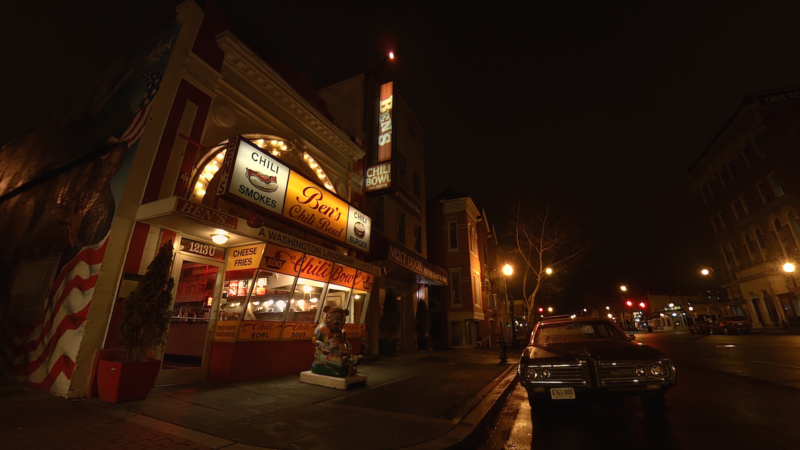Traveling across America has historically been a dangerous feat for African Americans. Over-policing and discriminatory policies have made road trips a struggle for Black people nationwide.
Today, the Sundance Film Festival is premiering a virtual reality documentary that gives viewers an in-depth look at what life was like for black travelers during segregation.
“Traveling While Black” places audiences in Washington, D.C.’s historic Ben’s Chili Bowl. Directed by Academy Award-winner Roger Ross Williams, the project was created in collaboration with The New York Times Op-Docs.
Ben’s Chili Bowl is well known for serving celebrity patrons throughout its years and is a staple in D.C., but part of its legacy lies within The Negro Motorist Green Book.
Named after its author, Victor Green, the Green Book as it is commonly known, was a guide that provided a list of restaurants, hotels and other locations that served African-Americans during the Jim Crow era. One of those landmarks is the space that now houses Ben’s Chili Bowl, which was a pool hall when it was mentioned in the book. Other businesses on U Street, where Ben’s is located, were in the book as well.
The Green Book has garnered national attention recently because of a film with the same name. Starring Mahershala Ali and Viggo Mortensen, the movie received backlash for not accurately depicting the hazards of dealing with racism while traveling as a black person in the Deep South during the 1960’s.
As our colleagues at Shadow and Act pointed out, the actual Green Book is barely even mentioned in the movie.
“In Farrelly’s Green Book, Black people don’t even touch the Green Book, let alone talk about its vital importance to their lives. Instead, the film centers the story of a racist white man who makes an unlikely Black friend on a journey through the American south and becomes slightly less racist.
In this reverse-Driving Miss Daisy film, Viggo Mortensen stars as Tony Lip, an Italian American bouncer hired to drive and protect Mahershala Ali’s queer, Jamaican-American classical pianist Dr. Don Shirley on a concert tour from Manhattan down to the deep south.
The first mention of the Negro Motorist Green Book in the film is when a white representative from Dr. Shirley’s record company pulls Lip aside to hand him a copy and explain that Lip will need it to know where he can safely take Dr. Shirley on this trip down south.”
The film was written off as a “white savior movie,” but received 16 major nominations. So far, it has won three Golden Globes.
Williams said the title of the film is misleading.
“It’s not about the Green Book, which was lifesaving and an essential part of black life in America,” Williams said. “Victor Green’s legacy was stolen from him.”
Williams said “Traveling While Black” lets African Americans from the past and present tell their own stories. The VR film features intimate interviews with D.C. residents and the mother of Tamir Rice, the unarmed 12-year-old who was shot by a police officer in 2014.

Audiences are placed in the middle of discussions with black Washingtonian’s who grew up during the Jim Crow era and struggled to find necessities like blacks-only restrooms. The VR experience turns back the hands of time, sits viewers in the 1960’s version of Ben’s Chili Bowl and shows the many ways the small business has aided black people throughout generations.
“Ben’s Chili Bowl is such an iconic place in D.C. and in a safe space for black people,” Williams said. “I wanted people to be immersed into the community.”
Before production began, Williams visited the diner and learned that it was also once the location for one of the first black silent movie theaters, a business that was also in the Green Book.
“Every black person in America carries this fear with them — a pain,” Williams said. “What’s amazing to me is that since the original Green Book, not much has changed. It’s open-season on African Americans who are traveling, especially young black men.”
Williams said his film brings that pain to the surface and he hopes to spark a conversation.
“We need people to understand that this is happening in the everyday lives of black people,” Williams said.
Williams serves on the Board of Governors for the Academy of Motion Pictures Arts and Sciences. He said he wants to open the door for people of color in the film industry and the Academy.
“This is the real story of what the Green Book was about and what it represented,” Williams said. “We have to tell our own stories and people will come.”
“Traveling While Black” is available now on Oculus Rift, Oculus Go, and on the NYT Op-Docs page.

